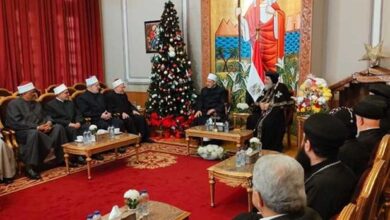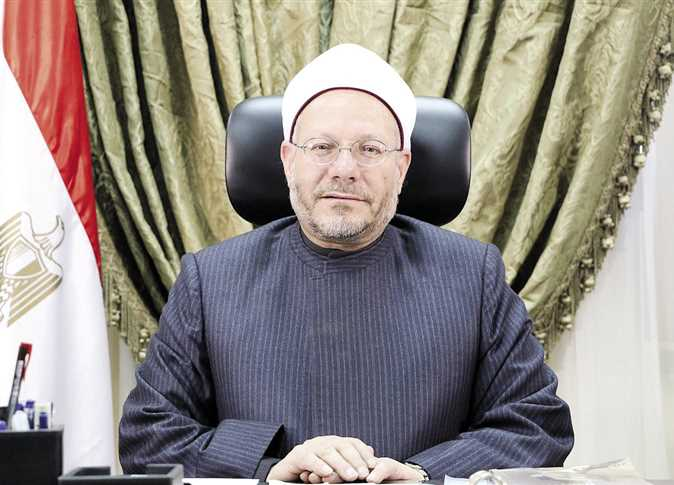The exclusion of 10 presidential hopefuls from the upcoming race remains at the forefront of local news Thursday.
"We found no reason to accept the barred candidates' perceived injustices," is the explanation provided by the Presidential Elections Commission for rejecting the appeals that followed the initial decision on Saturday.
As a headline for state-owned Al-Ahram's lead story, the explanation is further elaborated on in a story that says the commission "spent two days reviewing the appeals made by the candidates in question, before concluding that there was no basis to their objections."
Khairat al-Shater, who was the Freedom and Justice Party's main candidate and a front-runner before his exclusion, has responded to the commission decision by announcing that the ruling Supreme Council of the Armed Forces is "not serious about handing over power to an elected, civil authority," and calling for the "isolation" of Presidential Elections Commission head Farouk Sultan who, Shater claims, "is still loyal to Hosni Mubarak."
Regarding problem candidate Hazem Salah Abu Ismail and his mother's nationality, the commission reiterated that the latter does indeed hold dual citizenship according to documents received from the US State Department on 12 April. Additionally, the Egyptian Foreign Ministry has obtained the mother's American voter registration form, "confirming that she is indeed an American citizen," Al-Ahram reports. According to the paper, both documents were "repeatedly" presented to the candidate who "refused to acknowledge their existence or validity."
Hoping to help Abu Ismail find closure on the issue, Sultan has offered, according to independent daily Al-Shorouk, to "show these documents on national television." The statement is accompanied by an image of a fed-up looking Sultan holding up the contested evidence.
Further fallout comes in the wake of what is being referred to in the papers as the "Mufti Bomb" — the explosive element being a "surprise" visit by Grand Mufti Ali Gomaa to Jerusalem, where, according to Al-Ahram, he "performed noon prayers at Al-Boraq Mosque … before visiting the Church of the Holy Sepulchre, as well as the Latin Patriarch of Jerusalem." Al-Boraq Mosque is a small mosque located in the courtyard of Al-Aqsa Mosque.
Much has been made in the media of the mufti's "unprecedented" visit into occupied territory; the mufti himself has, for his part, announced that the visit was an "unofficial" one, and carried out under the supervision of the Jordanian authorities, meaning that "no visa or entry permit from Israel was required, or issued."
However, this did not prevent Al-Azhar Grand Sheikh Ahmed al-Tayyeb from calling an "emergency meeting" on Thursday morning in order to "study the issue and find certainty in Al-Azhar's position regarding it." Tayyeb also told Al-Ahram that he had not been consulted or informed of the trip, which was not been approved by Al-Azhar. The imam added that he only became aware of Gomaa's presence in Jerusalem when he saw it "documented by the media."
Meanwhile, state-owned Al-Akhbar's front-page coverage of the mufti's visit to Jerusalem consists of a one-word response (five in English) by Islamist MPs: "We will hold him accountable."
Independent papers seem more concerned with the growing mess that is the constitutional debate, with Al-Dostour's front page reprinting the collective worries held by "politicians" that the constitution is being "slapped together." These concerns come in the wake of Field Marshal Hussein Tantawi's meeting with political leaders on Sunday, during which he stressed the need to finalize the new constitution before the upcoming presidential election. However, a "number of political analysts and strategic experts" disagree, stating that rushing through a constitution for a country "as large and diverse as Egypt" would not only be "extremely dangerous" but would also "perpetuate and exaggerate the state of instability to uncontrollable levels." As a result, a growing number of the aforementioned "experts" have been calling for the postponement of the presidential elections by at least six months.
Unsurprisingly, others seem to disagree, with former Muslim Brotherhood leader Mohamed Habib suggesting to Al-Dostour that "SCAF has us right where they want us by forcing us to either postpone the elections, or present a deficient constitution" that will only serve the members of the military council. "Either option," Habib explains, "is equally in the SCAF's best interest."
Party mouthpiece Al-Wafd reports on the "downfall of the national security state," referring to the apparent fall from grace of the "intelligence" community — defined by the paper as Tantawi, former Vice President Omar Suleiman and former Prime Minister Ahmed Shafiq — which continues to suffer in the face of escalating verbal attacks and threats from excluded Islamist candidates and their supporters.
Promising to make things interesting is Suleiman's murky past, with the former intelligence chief planning to make good on his vow to release incriminating evidence that would obliterate any chance his opponents would have in the elections. According to Al-Wafd, Suleiman is soon planning to release "pictures and audio files" capturing a current presidential hopeful in a "shameful and heavily obscene situation" proving him to be a "degenerate."
Apparently concerned that such acts of pure evil might hurt his public image as a potential president, Suleiman has since had a spokesperson offer the reassurance that surveillance tactics of this nature and the gross violation of privacy would not be the norm under his rule. "These things happened during the old regime, and that time has passed" the spokesperson explained.
Trying to climb back on the bandwagon, the Brotherhood's Freedom and Justice Party announced — on the front page of its Freedom and Justice paper — its intention to join "The Friday of Power Transition," the mass gathering scheduled to take place in Tahrir Square on 20 April. Originally called for by the April 6 Youth Movement and other secular groups as a response to growing Islamist influence over political affairs, as well as to Suleiman's announced candidacy, Friday's protest now promises to bring together a wide spectrum of political parties and ideologies.
Besides responding to the SCAF's accusations with counter-accusations, the paper seems to provide few details regarding the FJP's planned participation on Friday. Instead the paper offers some strong words for Mufti Ali Gomaa, calling his trip to Jerusalem a "visit of disappointment, and shame."
Egypt’s papers:
Al-Ahram: Daily, state-run, largest distribution in Egypt
Al-Akhbar: Daily, state-run, second to Al-Ahram in institutional size
Al-Gomhurriya: Daily, state-run
Rose al-Youssef: Daily, state-run
Al-Dostour: Daily, privately owned
Al-Shorouk: Daily, privately owned
Al-Wafd: Daily, published by the liberal Wafd Party
Youm7: Daily, privately owned
Al-Tahrir: Daily, privately owned
Freedom and Justice: Daily, published by the Muslim Brotherhood’s Freedom and Justice Party
Sawt al-Umma: Weekly, privately owned
Al-Arabi: Weekly, published by the Nasserist Party
Al-Nour: Official paper of the Salafi Nour Party




